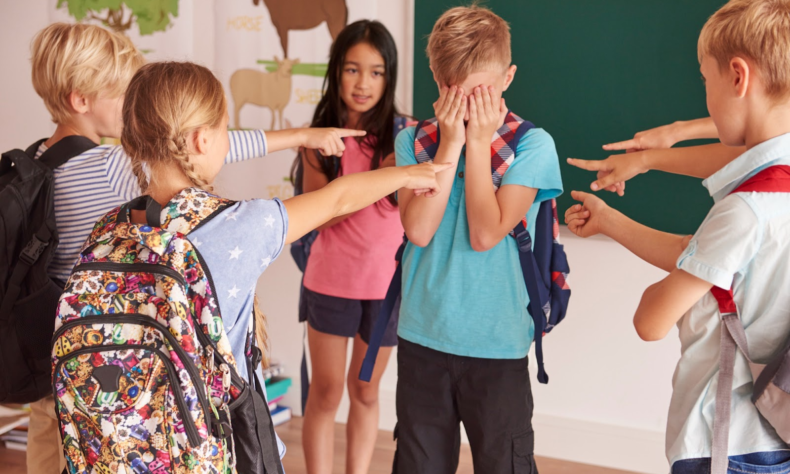
Strategies for parents and teachers to use in the fight against bullying in schools
Children’s mental and emotional health can be adversely affected by bullying in schools, which is a serious problem that can have long-term repercussions if not addressed. Furthermore, it can lead to poor academic performance, absenteeism, and even students dropping out of school altogether. Bullying may manifest itself in a variety of ways, including through physical assault, verbal harassment, social isolation, and online harassment (also known as cyberbullying). It is necessary for adults to assist children in coping with bullying by creating a safe and supportive atmosphere, instructing them in methods for coping, and encouraging them to engage in good behaviour. This is true for both parents and teachers.
Detecting the signs that someone is being bullied
Recognising the signs and symptoms of bullying is the first step in developing a strategy to stop it. Changes in a child’s academic performance and behaviour, such as withdrawal, avoidance, anxiety, and sadness, medical symptoms such headaches or stomach aches, and changes in academic achievement should be brought to the attention of the child’s parents and teachers. The faculty and staff at the School Near Jia Bagha Road school have to keep a close eye on the behaviour of the students and immediately step in if they see any instances of bullying.
Having open and honest conversations with children
It is critical to have open and honest conversations about bullying in schools with children and to encourage them to have those conversations between themselves. Parents are encouraged to participate actively, pose questions, and offer assistance to their children as they develop anti-bullying methods. Students are more likely to feel at ease discussing their experiences and feelings in a classroom setting that has been established as safe and supportive by their instructors.
Providing training on coping skills
Children need to build resiliency and learn coping skills in order to deal with the effects of bullying. Assertiveness, problem-solving, conflict resolution, communication, and self-esteem are some of the other skills that fall under this category. Parents and teachers may work together to teach children these skills and then assist them in applying those abilities in real-world scenarios.
Inspire compassion and kindness in others
One successful technique for avoiding bullying is to encourage empathy and compassion among individuals. It is within the power of teachers to cultivate a pleasant atmosphere in the classroom in which pupils feel appreciated and connected to one another. In addition, parents may provide an example of empathy for their children by performing acts of compassion for others, and they can urge their children to do the same. Children develop a stronger sense of community and are less likely to engage in bullying conduct when they are encouraged to stand up for and protect one another.
Creating a setting that is both safe and motivating to work in
It is crucial to the fight against bullying to create an atmosphere that is both safe and supportive. It is possible for schools like Best Primary School in Lahore to have clear rules and processes for dealing with occurrences of bullying in schools and teachers are able to create clear expectations for students’ behavior’s. It is also possible for parents and teachers to work together to create an atmosphere in which children feel comfortable coming forward to report instances of bullying and seeking support.
Managing situations of cyberbullying
The problem of cyberbullying is becoming more prevalent, and it is essential to find solutions to this particular type of bullying in schools. Parents are able to keep tabs on what their children are doing online and instruct them on how to behave appropriately when using the internet. Teachers may also incorporate lessons on internet safety into their lesson plans to assist students understand the dangers of cyberbullying and the steps they can take to protect themselves from it.
Seeking the aid of trained professionals
Bullying can occasionally have long-term repercussions, both physically and mentally, on the mental and emotional health of a kid. Under these conditions, it is quite likely that one will require the help of a trained specialist. Parents have the option of seeking counselling for their kid, and teachers have the ability to direct pupils in need of support to school counsellors or mental health professionals.
Providing agency to onlookers
In the fight against and prevention of bullying, bystanders play an extremely important part. Helping to interrupt the cycle of abuse that bullying creates can be facilitated by encouraging bystanders to report occurrences of bullying in schools. Children may learn to be allies to victims of bullying from their parents and teachers, and they should be encouraged to do so.
Establishing and maintaining fruitful connections
Building healthy connections with children is one of the most important things that can be done to stop and prevent bullying. It is possible for parents and teachers to take the time to get to know each kid as an individual and create relationships based on trust and respect for one another. This tactic helps to create an atmosphere of solidarity while also discouraging bullying.
Noting the differences between things
In conclusion, it is necessary to acknowledge and actively support diversity. It is possible to cultivate a feeling of empathy in youngsters and avoid bullying by instructing them to understand and accept the unique characteristics that others possess. In order to cultivate a community that is more tolerant and accepting of differences, parents and teachers should encourage children to enjoy variety and embrace its many forms.
Summary
In order to effectively combat bullying in schools, a multipronged strategy including parents, teachers, and the society at large is required. Recognizing the signs of bullying, communicating openly with children, teaching coping skills, promoting empathy and kindness, creating a safe and supportive environment, addressing cyberbullying, seeking professional assistance, empowering bystanders, building positive relationships, and celebrating differences are all effective strategies for preventing and responding to bullying. If we cooperate, we will be able to provide children of various backgrounds with an atmosphere that is both secure and welcoming.





